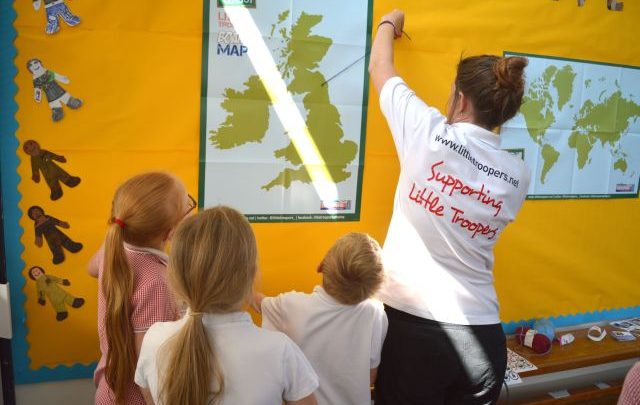How To Support The Children Of Military Families In Your Primary School

With some military families moving every two years, how can you assure that pupils are happy and successful?

Over 130,000 children in the UK have a parent serving in the British Armed Forces. In a recent survey, the charity Little Troopers found that 95% of military parents chose the local state school to educate their children.
Due to the nature of being part of the military some families can move every two years. Mariam Khokar, assistant headteacher at Alexander First School in Windsor, which has 64% of military children, summarises some of the challenges for schools: “The mobility of service life is our biggest challenge.’
‘Serving in the British Army can mean a number of new postings during the child’s school years. Some children in Y2 could have moved between one and five times since starting school. Moving schools affects the children’s emotions and can create gaps in their education.”
For the founder of the charity Little Troopers, Louise Fetigan, this changing of schools has been a big part of her family’s life over the last few years. Her daughter Madison, now 14, has been to a new school every September for five years due to her dad’s postings across the country and differences in the school systems.
From her own experience and listening to others through her charity work, Louise has seen the challenges for schools and military children. These experiences encouraged her to begin the Little Troopers at School project.
“Being part of a military family is something to be very proud of,’ says Louise. ‘However, for our children it is not an easy life. Mum or Dad can be away from home for up to nine months of the year and new postings can mean the whole family moving home and finding new schools.’
‘There is also a gradual shift in military families choosing to buy their own homes and permanently living unaccompanied from the serving parent. This means that a parent can be away from home Monday to Friday indefinitely, or for months deployed.’
‘Whatever the circumstances, we know from our research that military children often need extra pastoral support in school and for many schools it is hard to know what a family may need in their education setting.’
Through the Little Troopers at School project, Little Troopers has developed some helpful resources for schools. On its website you can find a set of useful information sheets that are free to download covering topics such as information on the Service Pupil Premium; supporting children through moving schools; challenges faced by military children; the effects of separation; military glossary; examples of how other schools support military children.
If you would like more information and support for service children in education, Little Troopers has developed a primary schools resource pack. Developed through family feedback and written by teacher consultants, the pack includes over 30 resources.
The templates in the pack have been loaded onto a USB to make it easy for printing. The pack includes information and forms for transition; lesson plans, circle time scenarios and role play plans; a short story from published author Tom Palmer; everything you need to create a Little Trooper board in school; activity sheets; suggestions for how to utilise the Service Pupil Premium. It costs £59.99 and is available from the charity’s online shop.
To launch the primary school resource pack, Little Troopers visited a primary school and held a workshop for some of the children who attended its ‘Heroes club’ for military children.
When asked for feedback, pupil Mimi wrote, ‘I am a Little Trooper because my mum serves with the Coldstream Guards. This is my third school. I’ve lived in Hampshire and Colchester.’
‘We recently did a fun workshop with a lady called Louise from a charity called Little Troopers. I really loved looking at the map of the world and marking the places where all the troops are deployed. It was also really fun being with other service children and talking about our mums and dads.”
To find out more, please email info@littletroopers.net











